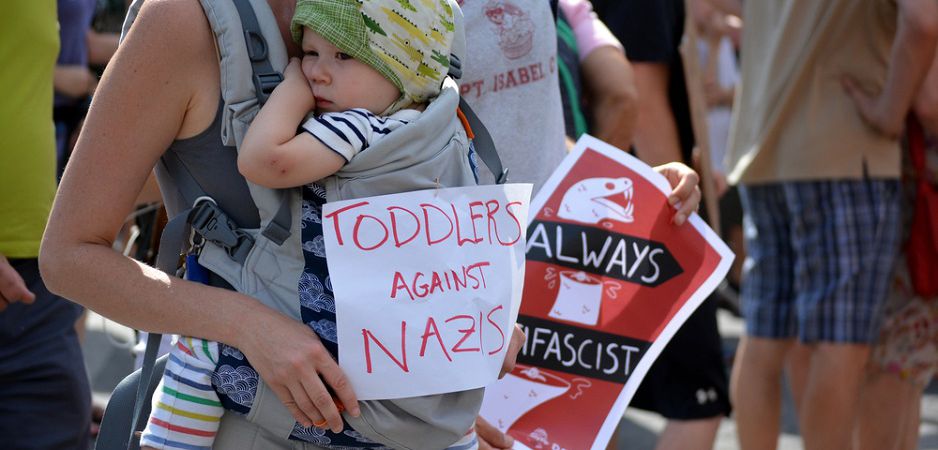Fifteen decades after abolishing slavery, a non-contrite America is still a slave to its racist past.
It is 152 years since the bloody civil war that tore America apart ended and slavery officially abolished. While blacks are no longer slaves today, are they truly free? In a country where all are equal, why would we still need movements like Black Lives Matter?
The truth is America has not really come to terms with its ugly, racial bigotry and injustices. Certainly not in the way South Africa has managed to heal and rebuild after enduring one of the most brutal racial divides of the 20th century. South African poet and writer Don Mattera explains succinctly how a nation can take collective responsibility in righting the wrongs of its past: “Sorry is not just a word — it’s a deed, an act.” It took leaders of the stature of Nelson Mandela and Desmond Tutu to not only lead South Africa out of apartheid, but aid in its subsequent healing.
In strong contrast to that caliber of leadership, America has elected Donald Trump as its 45th president. His rise to ascendancy was driven by a campaign that not only lacked basic human decency, but was filled with xenophobia, Islamophobia and misogyny. His hateful rhetoric has successfully managed to stoke the simmering racial tensions in the country, culminating in the events in Charlottesville, Virginia on August 12.
Sensationalism over substance
American media have never helped the nation look within and confront the ghosts of the past. While it is no surprise that right-leaning media choose to turn a blind eye to the truth, it is disappointing that the left-leaning ones also choose sensationalism over substance. The handling of Trump’s campaign and his ill-thought-out tweets has made a mockery of news, creating a reality presidential show.
Still, when it comes to describing hate perpetrated by white men, the media choose their words carefully. You will not hear the words terrorist, racist and riots when it comes to describing actions of white men. Instead, you will hear the phrases freedom of speech, shooter and mentally disturbed. A year after the Charleston church shooting massacre, covering the trial of the racist, white supremacist perpetrator, CNN’s headline read: “Mass shooter Dylann Roof, with a laugh, confesses, ‘I did it.’”
Yet when it comes to protests driven by the need to stand up for basic human rights and dignity, riots and unruly behavior are the terms that will dominate the airwaves. You will be hard pressed to find a headline that describes the incidents in Ferguson following Michael Brown’s death as “unrest.” The killing of Brown, who was shot dead by Officer Darren Wilson, caused the Ferguson unrest in August 2014. When a grand jury comprising nine white and three black people did not indict the police officer, a second wave of unrest followed in November. While there are innumerable instances of blatant racism, what happened in Ferguson epitomizes the racial injustice prevalent in America today.
Freedom to hate?
While the First Amendment guards an individual’s right to free speech, should it also protect extreme viewpoints that espouse hatred toward others? Certain aspects of speech such as obscenity, defamation, blackmail and threats are considered unprotected.
What happened in Charlottesville, Virginia was not an expression of freedom of speech. Calling themselves white supremacists and assembling to “Unite the Right” to take back the country is a veiled threat that ought not to be considered free speech. That this rally was organized to protest the dismantling of Confederate statues speaks to the lingering racial tensions from decades past that have never been properly quelled.
A compilation by the Southern Poverty Law Center has identified that there are 917 hate groups functioning within the US. These groups hate others in the name of race, religion, color and sexual orientation. The explosive growth seen in the number of hate groups since the turn of the century is in part attributed to the rise in immigration and the prediction that by 2040, whites will no longer be a majority in the country.
America is at an inflection point today. Led by a combative president who unabashedly aligns with white supremacists and an attorney general who promises to toughen its already broken criminal justice system, it is now up to the people of this nation to take on healing this racial divide lest it becomes an insurmountable chasm.
Collective Responsibility
A nation of immigrants that committed unspeakable acts of horror that virtually decimated the indigenous people of the land has no moral right to exclude people fleeing persecution elsewhere or seeking to improve their economic well-being by coming to America. The collective responsibility of the nation, its lawmakers and the president is to welcome them with compassionate policies, perhaps taking a measured approach, rather than build walls around us.
Abolishing slavery in 1865 did not mean the dawn of equality. On the contrary, America witnessed systematic racial and ethnic cleansing aimed not just at African-Americans, but Native Americans and Chinese-Americans during the lynching period until 1930s. African-Americans were also subjected to persecution and segregation by Jim Crow laws until 1965. In the post-civil rights era, racial tensions are high strung from the War on Drugs and police brutality against African-Americans. The period since 1980 has seen a staggering increase in incarceration rates following the War on Drugs with a disproportionate amount of African-American and Hispanic population being locked up.
With so much blood in its hand, America will, at some point in time, have to stop everything in its tracks to acknowledge its failings and atone for sins of its past.
Life, liberty and pursuit of happiness are unalienable rights given to all human beings. Not just white men. Pursuing happiness in life cannot be at the cost of hating others because of their race, color or sexual orientation. And if we must explicitly call out hateful rhetoric as no longer protected by freedom of speech, it is our collective responsibility as a nation to make it happen.
The views expressed in this article are the author’s own and do not necessarily reflect Fair Observer’s editorial policy.
Photo Credit: Christopher Penler / Shutterstock.com
Support Fair Observer
We rely on your support for our independence, diversity and quality.
For more than 10 years, Fair Observer has been free, fair and independent. No billionaire owns us, no advertisers control us. We are a reader-supported nonprofit. Unlike many other publications, we keep our content free for readers regardless of where they live or whether they can afford to pay. We have no paywalls and no ads.
In the post-truth era of fake news, echo chambers and filter bubbles, we publish a plurality of perspectives from around the world. Anyone can publish with us, but everyone goes through a rigorous editorial process. So, you get fact-checked, well-reasoned content instead of noise.
We publish 2,500+ voices from 90+ countries. We also conduct education and training programs
on subjects ranging from digital media and journalism to writing and critical thinking. This
doesn’t come cheap. Servers, editors, trainers and web developers cost
money.
Please consider supporting us on a regular basis as a recurring donor or a
sustaining member.
Will you support FO’s journalism?
We rely on your support for our independence, diversity and quality.






